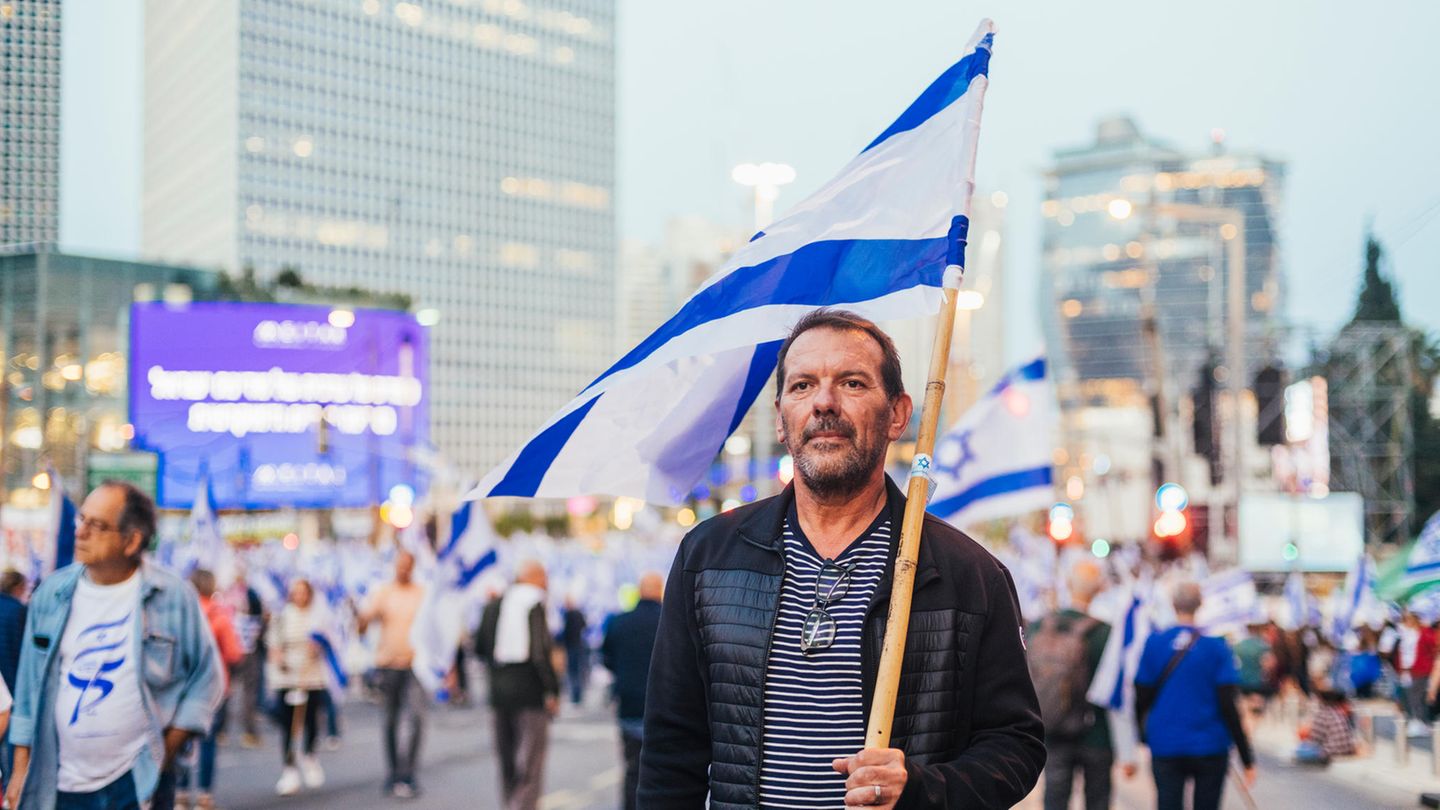Israeli entrepreneur and government critic Erez Shakhar talks about the Hamas attack – and its impact on Israeli society
Erez Schachar is co-founder and partner of the venture capital firm Qumra Capital in Tel Aviv. In recent months he has been one of the leading voices in the Israeli high-tech industry in protest against the government’s planned judicial reform.
How are you, Mr. Shakhar?
I’m fine thank you. My wife Netta and I are used to military conflicts. But I have three small children at home, three, seven and twelve years old, and of course they perceive the events more dramatically than we do.
In Tel Aviv, like in many other cities in Israel, there are repeated rocket alarms these days. How do you explain the situation to your children?
Children growing up in Israel don’t need much explanation in such a situation. Every child in Israel is aware that there can be war, they already know about the rocket alarm and know that they have to go to the shelter. This time, however, my children notice that something is different, that there is a different intensity, because it has been going on like this for a few days now. But overall they are pretty resilient.
Middle East crisis
Hamas attacks Israel – a chronicle of events in pictures
What do your days currently look like?
My wife Netta and I were very active in the protest movement against the planned restructuring of the judiciary. We are now channeling this energy into social engagement. I’m currently at the port (in Tel Aviv, where donations are being collected for families who have been evacuated from towns in the south of the country, editor’s note), I’m here all the time at the moment. The various organizations of the protest movement are making a joint effort to help those affected. Hundreds of volunteers are active here, which is really inspiring. People bring food, equipment, furniture, everything that is needed. We also collect donations. And one of our portfolio companies, Talkspace, which has developed an online therapy platform, is now providing free psychological care in Hebrew.
The terrible photos and videos of murdered people, old people, women and small children who are forcibly taken away and taken to Gaza are going around the world these days. What does it do to you to see these images?
You have to understand: A thousand people killed in Israel is, in terms of population, the same as 40,000 people in the USA. These are incredible numbers. In three hours I will be going to the funeral of the son of a close friend. My wife’s business partner lost her brother. We are not talking about some shocking event observed from a distance. This hits each of us as close as it can get. This shock will leave a major scar on the Israeli ethos for generations to come.
What do you expect from the war against Hamas that Israel is now waging?
After such an attack, it is clear that we cannot return to this routine in which there is constant tension between Israel and Hamas, which occasionally escalates into violence. A decision must be made. What that looks like is hard to say, but I think we need to make sure that an organization like Hamas no longer has the military capabilities that it has today. That is the minimum goal we must achieve, and I have no doubt that Israel can achieve it. There will be a high price to pay, on our side and on the side of the Palestinians. This will not be an easy war, nor one that will be over in a few days.
Many fear that the Hezbollah militia in Lebanon could open a second front against Israel. You too?
Yes, in my opinion this danger exists. It should not be forgotten that both Hamas and Hezbollah are Iranian proxies and receive massive support from Iran: financially, militarily, with training. But Israel is good at mustering the social solidarity and support necessary for a fight that is unfortunately necessary.
Hoping that this question doesn’t sound cynical to you in such a situation: What economic impact do you expect?
This is a legitimate question and, in my opinion, super relevant. Israel’s strength, including its military, is largely derived from its economic power. Otherwise, the country would not be able to defend itself in a region like this. In the long term, I see no reason to worry about the economy. In the coming weeks or months – however long Israel is in active struggle – there will certainly be some stagnation here, and it will be difficult to attract major investment from abroad. But I don’t see any significant risk in the long term. On the contrary, I believe that Israel will emerge victorious from this situation and will then enjoy greater international legitimacy than before.
Editor’s note: This interview first appeared here in the business magazine “Capital”, which, like stern, is part of RTL Deutschland.
Source: Stern

